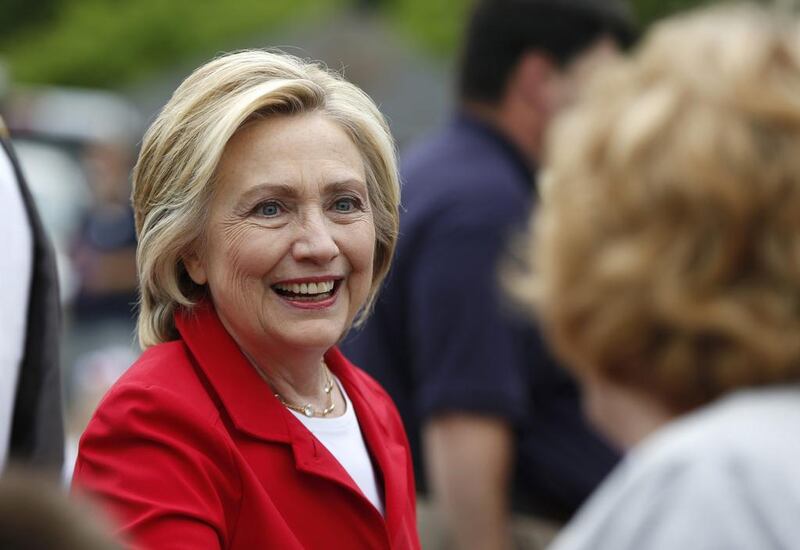In October 2003, the then Malaysian prime minister Dr Mahathir Mohamad made a speech at the Organisation of Islamic Cooperation summit in Kuala Lumpur. It made world headlines, due to his having said: “Today the Jews rule the world by proxy. They get others to fight and die for them.” Shortly afterwards I was asked to write a defence of Dr M, which I was glad to do, as the thrust of his text was an eminently sensible call for Muslims to embrace modernity and moderation.
The couple of sentences about “the Jews” were tricky, though. So I rang a former minister and diplomat who I thought would understand my problem. Not so much, it turned out. “But it’s true,” he exclaimed jovially. “The Jews do rule the world!”
The late Barry Wain, a former Asian Wall Street Journal editor, cleared Dr Mahathir of the charge of anti-Semitism in his biography, Malaysian Maverick. And neither would I lay it at the former PM’s associate – however much their comments may appear to fit the bill in the West.
For what is little understood is that in many parts of the globe, the influence of the pro-Israel lobby in America is so strong, that it appears that Israel’s every wish is Congress’s command.
Take, for example, reports that Hillary Clinton has recently been assuring donors that, if elected president, she would be a “better friend to Israel” than Barack Obama. It is one thing for Mrs Clinton’s friends to brief reporters, but why should she need to go one up on the current president when under his administration Israel remains the biggest recipient of American aid in the world?
Support for Israel makes up 55 per cent of the total US foreign military financing budget. Mr Obama has continued to let Tel Aviv undermine the UN Nuclear Non-Proliferation Treaty by colluding in Israel’s refusal to admit officially that it has nuclear weapons. And his administration has also continued to veto UN resolutions condemning Israel’s illegal settlements in Occupied Palestine.
Joe Biden’s national security adviser, Colin Kahl, wrote in 2012: “As the defense department official with primary responsibility for enhancing Israel’s capabilities and deepening joint military cooperation with the United States from 2009 to 2011, I can attest … no president in history has done more for Israel’s security than Obama.”
In America, however, that’s still not enough. Before the last election, the Republican candidate Mitt Romney managed to accuse Mr Obama with a straight face of “throwing Israel under the bus”.
Among the possible contenders for the GOP nomination this time round, Jeb Bush has criticised Mr Obama for playing “schoolyard antics” with Israel, while Rick Santorum has said the president is not the country’s friend.
It is high time to end such pandering to a pro-Israel lobby, which is one that is much more hardline and intransigent than the Israeli populace as a whole, and one with which many liberal American Jews disagree.
For Israel is no longer “the only democracy in the Middle East”. With the handover of power after parliamentary elections last October, Tunisia, despite its troubles, has already passed Samuel Huntington’s “two turnover” test. Turkey’s recent elections also demonstrated the resilience both of its democratic institutions and the commitment of its population to the accompanying checks and balances.
Israel’s interests may have matched those of the West but it can hardly be said that they do any more, when its leadership consistently sabotages efforts towards a peace that western leaders, such as John Kerry, have devoted so much time to trying to build. Neither can a state that has committed what many consider to have been war crimes against Palestinians, quite apart from practising a de facto apartheid, be said to share the West’s values.
This blind favouritism alienates other allies and creates vast reservoirs of resentment towards Israel. Sentiment against the actions of current Israeli leaders can then turn, among those who fail to distinguish between the leadership of the Jewish state and Jews in general (the majority of whom are not Israeli, and who should not be held accountable for the misdeeds of bad leaders in any case), into a more generalised anti-Semitism.
Dan Cohn-Sherbok once wrote a book called The Paradox of Anti-Semitism, in which he argued that it was persecution that had kept Judaism alive. The paradox of anti-Semitism today, however, I would argue, is that it is fuelled largely by America’s unquestioning support of Israel, which is precisely the opposite of the desired result. It may seem counter-intuitive, but the best way for the US to be Israel’s friend would be to treat it more like its other allies – and help it make more friends of its own.
Leading figures in American politics know this. When I interviewed the current US Ambassador to the UN, Samantha Power, before Mr Obama had won the Democratic nomination, she criticised online questioning about his foreign policy: “So much of it is about: ‘Is he going to be good for the Jews?’”
Ms Power was just advising a candidate then, however. Ambassador Power would never say something so blunt. That reluctance is the problem that must be overcome, in the interests of America, Israel and the rest of the world that cannot understand why the US’s “exceptional friend” can do no wrong.
Sholto Byrnes is a Senior Fellow at the Institute of Strategic and International Studies, Malaysia





